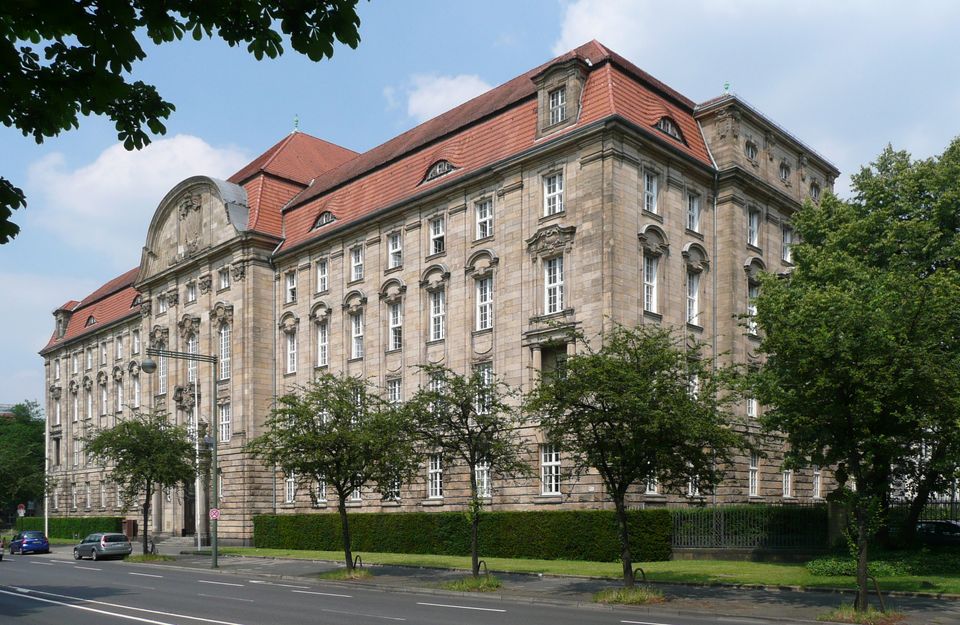
Seeing Justice Done in Duesseldorf
“Justice must not only be done, but it must be seen to be done.” Syrian civil society has long complained about lack of access to Syria related trials taking place in Europe, and particularly the fact that Arabic language interpretation is not provided to the public, even when it is already available to the accused. That is why a recent decision by the Duesseldorf Higher Regional Court is so important. The court granted SJAC’s trial monitor access to the Arabic language interpretation, helping to secure victim’s rights and ensure that the Syrian public is able to follow criminal proceedings impacting on them.
National courts in numerous states have sought to prosecute international crimes arising from the Syrian conflict through the exercise of extraterritorial jurisdiction (including Universal Jurisdiction). This has provided a measure of justice to Syrian victims in hundreds of cases to date and is an important stop-gap measure until a more comprehensive solution is rendered possible. However, in many of these cases – being prosecuted in Germany, the Netherlands and other states – those most impacted by the criminality, namely Syrian victims, do not have access to the proceedings. This is due to a number of factors, including the geographic distance between Syrians and the courts hearing these cases, awareness of legal processes, limited public outreach by courts and prosecutors, etc. When press agencies do cover these trials, the reporting is limited to a few hearings, despite the fact that trials often take months or years to make their way through the court system.
Arabic language interpretation is another significant hurdle. For example, in Germany, Syria-related trials are conducted entirely in German with Arabic-language interpretation being provided to the accused as required by their fair trial rights. Many Syrians living in Germany have learned a level of German language. But following legal proceedings remains a significant challenge. An integral part of a fair trial is its publicity. That is why SJAC has sought to obtain access to the Arabic language interpretation already provided to the accused person (and plaintiffs).
In the trial against Anwar Raslan, in Koblenz, Germany, the court initially denied SJAC’s request to have access to this interpretation. However, with the support of lawyers coordinated by ECCHR, SJAC appealed that decision to the German Constitutional Court, obtaining a provisional order requiring the trial court to provide interpretation to accredited members of the press. Since the time of that ruling, the German legislature amended the Code of Crimes Against International Law, and specifically acknowledged the importance of non-German speakers being able to follow trials involving international crimes. Unfortunately, the amendments did not guarantee access to interpretation and left the issue to the discretion of the court trying a case.
This brings us to Mohammad A. and Asmael K. who are being tried for crimes related to their alleged membership in ISIS at the Duesseldorf Higher Regional Court. As part of its trial monitoring program, SJAC sought to attend the proceedings and requested the court to share access to the Arabic language interpretation being broadcast to the accused via headsets. The court initially declined, stating that it was not technically feasible. After SJAC reminded the court of the German Constitutional Court decision, however, the court reassessed the situation and has now agreed to provide SJAC access to the interpretation. This is an important precedent and SJAC is grateful for the flexibility of the court is guaranteeing Syrians access to these proceedings.
SJAC created its trial monitoring program not only to preserve a historical record of the crimes committed in Syria, but to provide Syrians access to the truth about the systems of mistreatment perpetrated during the conflict. This record will serve as a foundation for more comprehensive justice mechanisms in the future and presently allows Syrians to see justice to be done in Duesseldorf and beyond.
___________________________
For more information or to provide feedback, please contact SJAC at [email protected] and follow us on Facebook and Twitter. Subscribe to SJAC’s newsletter for updates on our work